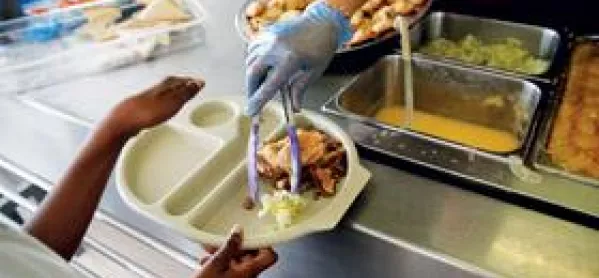Free meals prove to be a hot potato

Scotland’s primary schools appear to have coped with the huge challenge of implementing universal free meals for 135,000 P1-3 pupils - but the issue has become a political football after Labour denounced the scheme as a boon for “top-earning households”.
Anecdotal evidence suggests that no major problems have arisen so far, although many schools are already considering introducing measures to cope with the extra demand.
The EIS teaching union said that dining halls had been “much busier” than previously and that many schools had already introduced new systems such as timetable changes and reduced menus.
And they may be even busier in future - a national parent group discovered that many people were unsure about which children were eligible for free meals and some were not even aware that the pound;95 million scheme existed.
“The general impression is that some people are a bit unclear about the whole thing,” said Barbara Schuler, policy manager for the National Parent Forum of Scotland, citing complaints about a lack of information at a local and national level.
The scheme would “bring important health benefits for young children and help pupils to concentrate on their learning throughout the school day”, said EIS general secretary Larry Flanagan. It was “essential” that all 32 councils delivered on this commitment, he added.
Alex McLuckie, a senior organiser for public sector union GMB Scotland, whose members include support staff, claimed that the move would counteract poverty, social exclusion and the stigma around free school meals. “It is a pleasant change to see money being invested,” he added.
Several charities hailed the start of the scheme. Children in Scotland said the initiative was particularly timely as the “most vulnerable families” were increasingly dependent on food banks. Chief executive Jackie Brock said the scheme would help to address the attainment gap between poorer children and their more affluent peers.
However, Scottish Labour insisted that the country’s top earners would benefit “at the expense of those most in need”.
The party’s new education spokesman, Iain Gray, said that children from poorer families already qualified for free school meals. He added: “By definition, the extension will not benefit those families at all, while the wealthiest families in Scotland will be celebrating the news that the Scottish government’s proposals will save them pound;330 a year.”
Mr Gray said that free school meals were “a good thing in general”, but argued that “those most in need [will] pay the price in cuts to local authority services and increased charges for things like care for people with disabilities”.
Labour’s position was criticised as “confused” by Scottish Liberal Democrat leader Willie Rennie, whose colleagues in the Westminster coalition government secured a policy of free school meals for every young pupil in England in 2013.
The scheme would help children from poor families who previously did not qualify for a meal and would remove the stigma of means-testing, he said.
“Labour is adopting a tight-fisted and mean-spirited approach, born from opposition for its own sake rather than any sound, rational thinking,” Mr Rennie added.
The Scottish government is providing revenue funding of pound;70.5 million over two years to deliver the free meals, with total capital funding of pound;24.8 million.
The SNP promised to introduce free meals for P1-3 in its 2007 election manifesto. After taking power, however, it advised councils that they should prioritise children in the most deprived areas. A 2012 TESS survey found that half of Scotland’s councils had made no move to extend free school meals.
The prospect of universal provision for P1-3s was revived after the Westminster government’s announcement of its pound;600 million scheme, which also directed extra money to the Scottish government.
“School lunches are hugely important in supporting a pupil’s ability to learn,” first minister Nicola Sturgeon said this week. “We know from recent studies that [they] improve nutrition and health among pupils, which can only help to improve attainment in schools.”
`It’s all gone quite smoothly’
Staff at the 210-pupil Raigmore Primary School in Inverness were nervous about coping with the influx of extra P1-3s lining up for hot school meals. But headteacher Fiona Shearer says the new process has “all gone quite smoothly”.
“I was concerned that there might be a lot of waste, but not so far,” Ms Shearer says. “We’ve staggered the lunch breaks so that the children are coming in 5-10 minutes earlier than before.
“We were looking at having different lunch hours altogether for younger and older pupils, but we haven’t had to do that.”
Ms Shearer says that although the school does not “have much space to work with”, most of the children who started taking school meals this week were already in the hall with packed lunches before.
Overall, and despite having been “a wee bit concerned about the practical side of things beforehand”, Ms Shearer says the policy is “great for families - they’ve been very supportive of it”.
Keep reading for just £1 per month
You've reached your limit of free articles this month. Subscribe for £1 per month for three months and get:
- Unlimited access to all Tes magazine content
- Exclusive subscriber-only stories
- Award-winning email newsletters



